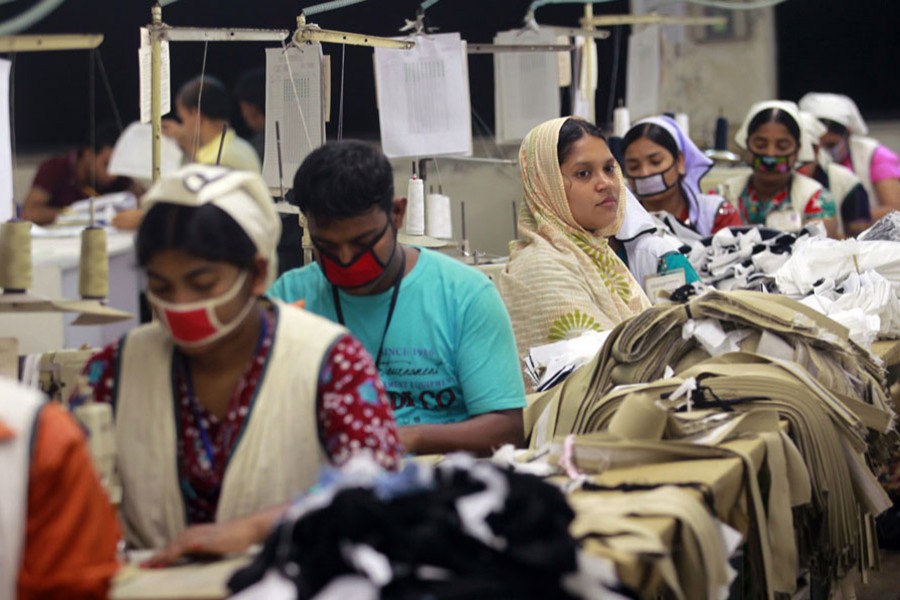A move has been initiated to raise the minimum monthly wages of the workers of the country's ready-made garment sector in line with a provision of the labour law.
This, industry insiders say, would help brighten the image of the apparel sector both at home and abroad.
Bangladesh Garment Manufacturers and Exporters Association (BGMEA) has recently made a request to this effect.
The apparel apex body in a letter on November 08 requested the labour ministry to form a minimum wage board to review the existing wages of the garment workers, they added.
Industry insiders, however, opined that the BGMEA's move came following pressure especially from the international arena. The latest initiative has also been taken to avert a likely labour unrest centring the demand for wage hike, they said.
More than 50 RMG units in Ashulia belt remained closed for nearly a week following a two-week work abstention enforced in support of the demand for wage hike, among others, which drew international attention. Following the situation, international rights groups alleged that workers' rights situation was getting worse in the country's RMG sector and they repeatedly urged the European Union (EU) to review Bangladesh's eligibility for Generalised System of Preferences (GSP).
"…despite adverse situation the sector is currently undergoing, we have made request to take necessary measures to form minimum wage board for re-fixing the minimum wages for garment workers in line with the provision of the labour law and to uphold our image both at home and abroad," the letter signed by BGMEA president Md Siddiqur Rahman reads.
The sector has been facing various adverse situations since December 2013 when the last minimum wages came into effect, the letter added.
A substantial sum of money has been spent on ensuring workplace safety, it said, adding that production cost has gone up by 18 per cent during last two years while many garment factories were shut due to their failure to be competitive following the sluggish global demand and a declining trend in garment prices.
"It has become difficult to be competitive due to a strong appreciation of local currency against US dollar whereas competitors' currencies depreciated with various supports coming from their respective governments," it said.
Despite all these, factories are providing 5 per cent annual increment while a central fund has been formed and money is being collected at a rate of 0.03 per cent from export receipts for the welfare of the workers, the letter mentioned and called for required measures for forming a minimum wage board for revising the existing one.
When asked, the BGMEA president said their move came in response to the call from three labour federations and to avert any untoward labour unrest in the industry that tarnishes the industry's image.
"In the past, there were such incidents before wage fixation," he added.
The labour minister and acting labour secretary could not be reached for their comments in this regard.
Welcoming the BGMEA's move, labour leader Sirajul Islam Rony expressed concern over the issue, saying that the leaders might try to fix an amount without considering the current living cost.
"To my knowledge, such a move has never been taken by BGMEA earlier," he said, adding that the minimum monthly wage of garment workers should go up twice the existing one, considering the rising cost of living which has also doubled since 2013 when the last wage was declared.
"It is the responsibility of the factory owners to negotiate the product prices with buyers and they can't just pass their failure on to the workers," he opined.
The last Wage Board formed in December 2013 fixed minimum wages for garment workers at Tk 5,300. Minimum wages for garment workers were fixed at Tk 3,000 in 2010 while Tk 1,662.50 in 2006 and Tk 940 in 1994.


